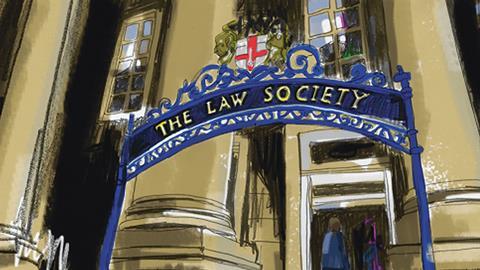July’s Council and annual general meeting saw the presidency transfer from Christina Blacklaws to Simon Davis. The new office-holder team of president Simon Davis, vice-president David Greene and deputy vice-president I. Stephanie Boyce took their posts at the AGM. Council had discussions about key issues and heard about the Society’s programme of influencing public policy on areas including access to justice, the role of the profession, and criminal and civil justice. The nature of the Society’s relationship with the SRA, and how this might develop, was also discussed.
Influencing for impact
Regulation
Professor Mayson’s independent review is considering a number of possible regulatory models for the future including models for the regulation of activity and/or title.
There are advantages and disadvantages associated with the proposed models and Council agreed it will be important to assess the impact of reform, particularly in relation to lightly regulated areas. We anticipate a report from the review in October. Council remains committed to the principle of regulatory and representational independence from government.
Legal technology
This growing area covers issues such as document automation, chatbots, practice management tools, predictive analysis, and knowledge management and research. Barriers to implementation include culture, training, operation and regulation, while the legal sector is still behind the financial sector in the use it makes of technology.
The Society’s new Law Technology webpage brings together our work. This includes a series of podcasts which begin with an introduction to LawTech. The page had over 2,000 hits in the first two weeks and the podcasts were viewed over 200 times. We are also working with partners such as Legal Geek and Barclays Eagle Labs. Next steps will include developing a digital guide and rolling out regional events.
Promoting the profession
Council was updated on the latest advertising promoting our profession as honest and honourable, approachable and accessible, experts in their field, client-focused, delivering value for money and adding value to society. Materials this year focus on real clients and their stories.
Law management
Good practice management enables a firm to focus on delivering for clients. Council had a presentation on our work to support members with current and future challenges in law management from Ann Harrison, chair of the Law Management section.
Our work focuses on support and assistance for firms of all sizes. We share good practice, thought leadership and innovation through conferences, magazines, webinars, web content and e-newsletters.
Challenges for the next three years include: regulatory change, the impact of technology, and the continuing emergence of alternative legal services providers.
Career companion
Freelancers
SRA Handbook changes likely to be introduced later this year will enable a new category of solicitor, the ‘freelancer’, practising in their own name, and not employing any other staff (if they offer reserved services).
We have been running an information campaign to encourage members to be ready, but we have also anticipated member needs for help and guidance for those who want to consider freelancing and for other members about how to work with freelance colleagues – with web resources, a practice note due in August, a blog and articles as well as webinars and e-learning.
Ethnic Minority Lawyers Division
Koser Shaheen, chair of the EMLD, shared the Society’s recent work. Statistics from 2017 highlighted the increase in the proportion of BAME solicitors – 2% of the profession in 1987, and 16.5% now. But more remains to be done. There are still barriers for BAME talent, notably in career progression, and improved dialogue with members is one way of mitigating these. Several issues were identified in discussion with members: for example, BAME solicitors feel there is too much focus on London, so the Society has been running events in the regions. There has also been dialogue about BAME representation in local law societies, and with several UK law firm networks that focus on BAME issues.
Women in Law pledge
The pledge was launched at our international symposium last month: we, the Bar Council and CILEx are encouraging members’ firms to sign up to the pledge, which covers the whole sector. It also encourages firms to consider the Diversity and Inclusion Charter, a new version of which is being piloted this year for launch in 2020.
Council business
The Council agreed to keep the proposed practising certificate fee at the same level for the third year running. This proposal will go to the Legal Services Board for approval.
The audit committee presented its annual report to Council, having assured the Board that the financial statements for 2017/18 are true and fair. The Society’s annual report and accounts are published on our website.
Council was updated on our evolving business plan for 2019/20. This will include the policy themes of access to justice, the role of the profession, technology, civil justice, regulation, property and Brexit. We will also look at our member offer of events and accreditations along with our commercial income, insights and data.
Council was updated on the work of its membership committee, which is considering the representative role of the Council and how it can better reflect the changing make-up of the profession.
Some 18 members re-elected or newly elected were welcomed to their seats on Council. New appointments were made to the equality, diversity and inclusion committee to bring it up to strength.
Council said goodbye to Colin Ettinger, Charlie Jones, Kayleigh Leonie, Rod Mole, John Perry, Rodney Warren and Prisca Wharton. Robert Bourns’ term as a Council member for the City of London ended, but he will continue to attend Council in his role as the Chair of the Law Society Board.
The next Council meeting is 3 October.
































No comments yet